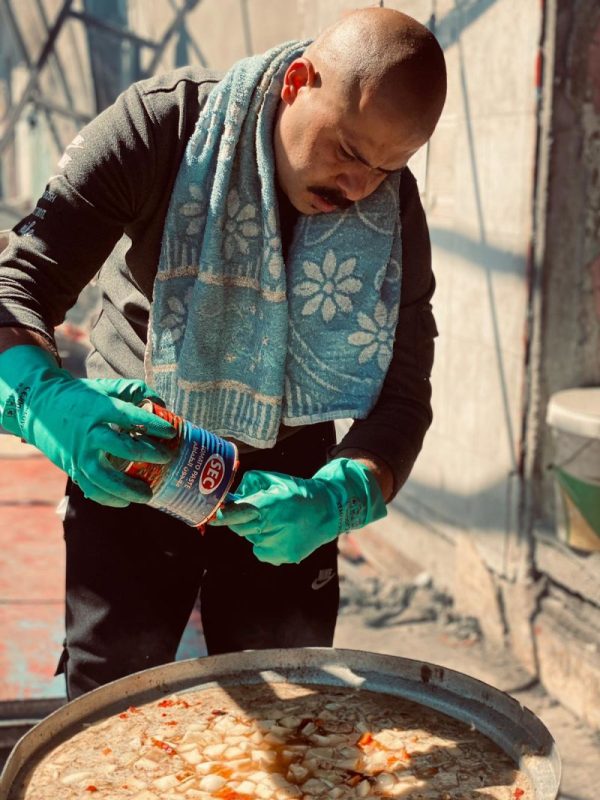Article Body:
The gruesome reality of war was brought to the forefront when a soup kitchen chef in Gaza was reportedly killed in a drone strike by the Israeli Defense Forces. Abdullah al-Hattab, who exhibited the art-and-heart of cooking to feed the needy, was annihilated abruptly in his tiny kitchen in the Gaza strip, according to his brother.
Abdullah’s brother Nour al-Hattab narrates the tragic incident with a heart heavy with grief. They had just finished iftar, the meal that breaks the day-long fast during Ramadan, when a drone struck their building. Everything happened so fast, and before they knew it, a life was lost, and their world changed forever. Abdullah was in his kitchen, doing what he loved most, preparing meals for those less fortunate when the horrific attack took him away from them. They killed him on the spot, Nour retells, his voice carries an undertone of disbelief and sorrow.
Abdullah’s legacy was not just of a beloved brother and son, he was also a beloved community figure, much esteemed for his selfless service. He devoted his life to serving needy people, and his small soup kitchen was a beacon of hope for hundreds of poor families in the region, particularly during this month of fasting and prayer. His death is undoubtedly felt as a significant loss for his loving family and the community that revered him.
Witnesses attested to the fact that Abdullah’s soup kitchen wasn’t just a place where people came to have their meals. It served as a refuge for the needy and destitute, a haven providing them nutrition and a sense of security. With his down-to-earth demeanor and hearty bowls of soup, Abdullah gave hope to many in the war-torn region of Gaza, lending them the strength to get through the tough times.
While the Israeli military often claims that they only target members of ‘terrorist organizations,’ such testimonies raise questions regarding their strikes’ precision and the depth of their intelligence. Instances like these cast a shadow over the legitimacy of their specific targets when innocent lives are lost amidst the turmoil.
There is a dire need for urgent analysis of such attacks to decipher whether they breach international laws that mandate the protection of civilians amidst war, and draw the line at human rights violations in times of war. Abdullah’s tragic demise stands as a symbol for the countless innocent lives lost in areas of conflict. His life and death underline the catastrophic civilian impact of warfare, reminding the world to strive for lasting peace.
The incident adds another layer to the complicated tapestry of the longstanding Israel-Palestine conflict. It’s a chilling reminder of the horrific realities people face in war-torn areas. As stories like Abdullah’s come to light, they highlight the urgency for peace talks, and change the global powers’ diplomacy and negotiation efforts with both sides.
Abdullah’s story will remain as a sorrowful reminder of the human cost of war. His legacy will live on through his work and his ethos, serving as an embodiment of hope, resilience, and humanity amidst turmoil. It is necessary that such incidents encourage discourse on negotiation and eventual peace, rendering justice for the innocent lives lost, like that of Abdullah’s. The hope remains that one day, this lamentable tale no longer repeats itself and people like Abdullah can live and serve in peace.




